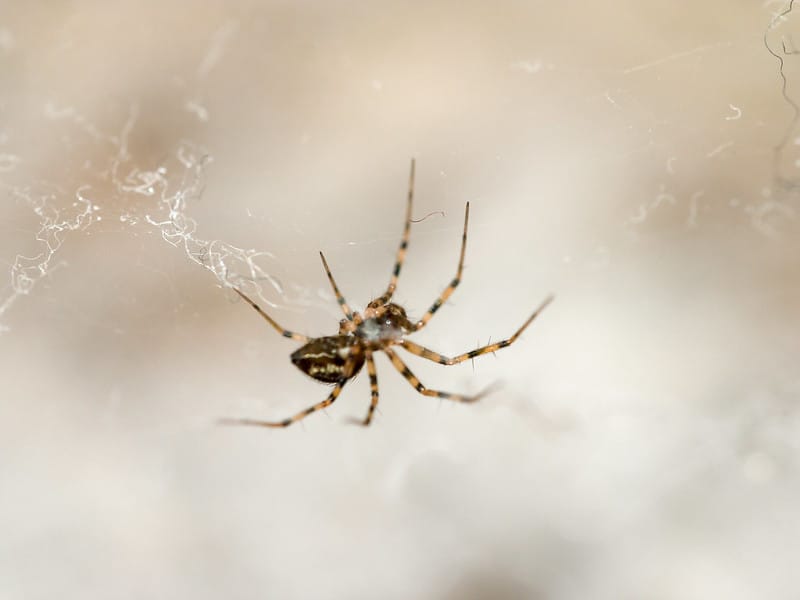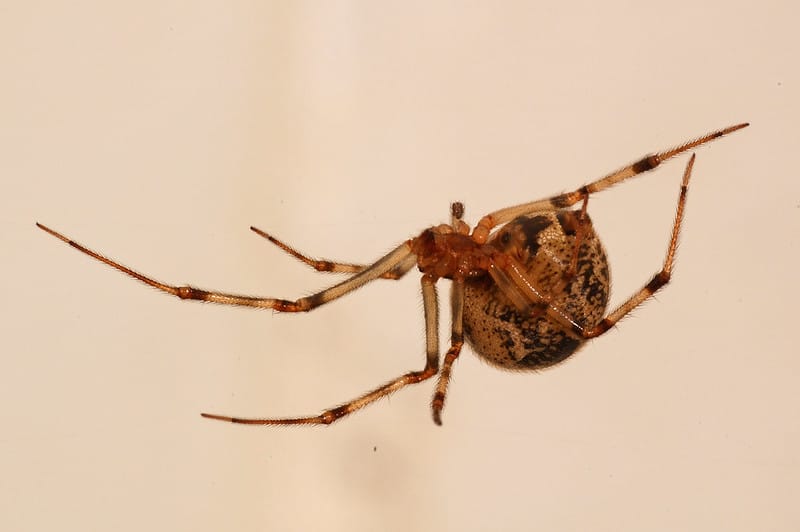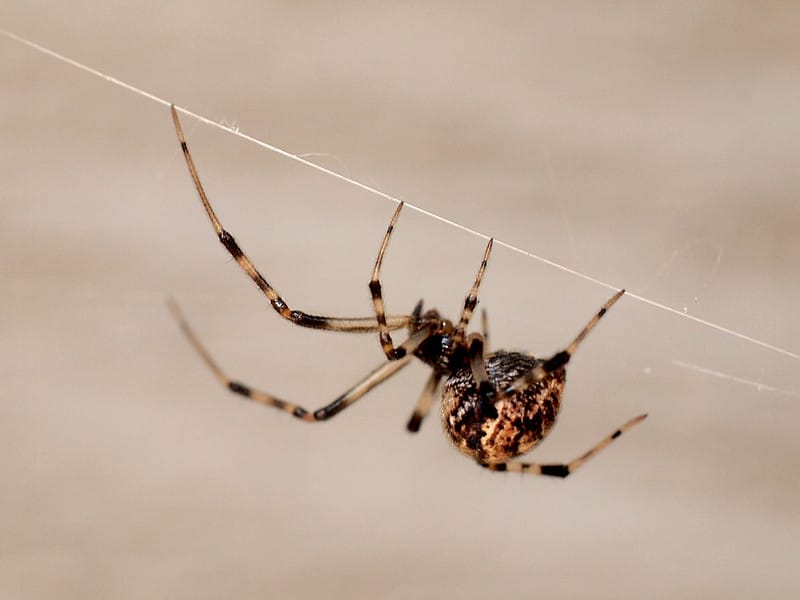Most homes have a handful of spiders each season, often found in corners, or in dark basements, or storage closets and places where other bugs are likely to be found. Addressing a spider issue is often the same as addressing other pest issues.
How do they get into your house?
Spiders have their colonies in places that aren’t often cleaned – but it’s not because they’re dirty – it’s just that they can build a web that survives longer here, and are unlikely to be disturbed by larger animals (yourself included). Spiders use spots such as holes, cracks, plumbing, pipes, and cables to move around and make new nests.
It’s a good idea to check outside for cobwebs. In most cases, more external spider activity will lead to more internal spider activity. Additionally, spiders natural love vegetation up against the house, so ivy and close trees or bushes are hotspots for many kinds of spiders.
Also, keep your storage spaces tidy and neat. Dust them off frequently, and try to ensure you take down webs that pop up, using a vacuum or broom.
In many cases, cobwebs aren’t the only signs of spiders. Though a majority of house spiders are the web-spinning kind like the American house spider or the black widow – a large portion of commonly spotted home spiders include species such as the wolf spider and jumping spider – who don’t spin a web and instead rely purely on pursuing and hunting to eat.
Do they lay eggs?
Yes. Spiders lay eggs and house spiders are no exception. In fact, the American house spider, Parasteatoda tepidariorum, can lay as many as 250 eggs in a single egg sac. And they lay egg sacs quite frequently.
Naturally, only the females lay eggs. The female house spiders are also more likely to stick around. The male spiders don’t stay in the same place for long and instead go searching for mates. The females, however, stay in their cobwebs for months even if they capture no prey – at which point they will simply relocate to another place in hopes of a better catch.
These persistent female house spiders are often the cause of more spiders in your home. Although not all of them give birth to 250 spiders per batch, they can easily increase the spider population of your home by a hundred in one go. Before you become too worried, note that most of these spiderlings, sadly, will be killed or will die naturally before they become adults.
What attracts spiders?
As mentioned above, the primary factor that causes a spider infestation in a home is plentiful food.
Pests such as cockroaches and flies are the staple diet of spiders. A thriving spider population means that you have an endless supply of bugs and insects and it’s probably going to be more important to get rid of these bugs and insects first before their population gets out of control and then shift your attention to the spiders.
Unlike spiders, who are carnivores and are attracted by other insects and bugs – the insects and bugs themselves are attracted by all sorts of things from stale food to open garbage bins and leftovers to kitchen waste and moisture.



